How Can You Be Prepared for a Tornado
Are you prepared if a tornado hits? Most of the time, you can get away with minor damage from a tornado and generally be safe in the basement. However, sometimes tornadoes can be catastrophic, no matter how well you try to prepare. You could be stuck in your basement for days. So, how can you be prepared for a tornado? Follow this guide below:
- What is a Tornado
- Tornado Warnings Vs. Watches
- How Can You Be Prepared for a Tornado Beforehand
- Things to have stocked in your basement
- What to Do During the Storm
- Facts About Tornadoes
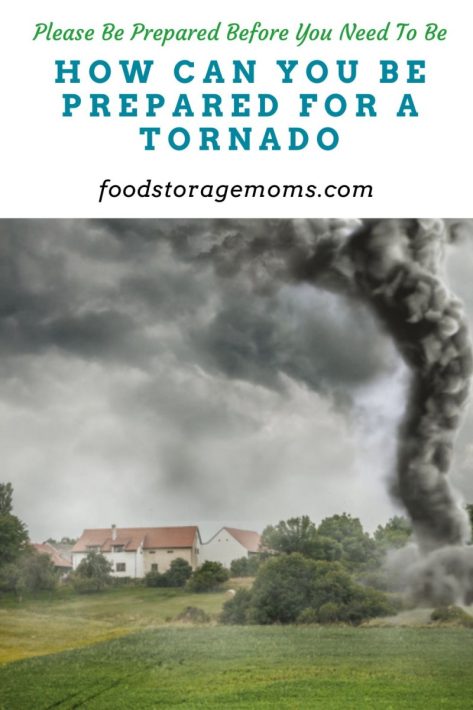
How Can You Be Prepared for a Tornado?
Tornadoes come much faster than hurricanes. With a hurricane, you generally know it’s coming days to weeks before. But, with a tornado, you may have a couple of hours, if that. This is why preparing for a tornado is essential long before it gets here! To do this, it’s crucial to know everything you can.
What is a Tornado
A tornado is a violently rotating funnel-shaped cloud of air that extends from a thunderstorm to the ground. It’s produced when cool air overrides a layer of warm air. This forces the warm air to rise quickly. Tornados can destroy large buildings, uproot trees, and hurl vehicles hundreds of yards away. They can even drive straw pieces straight into a tree. The most violent tornadoes can have speeds of up to 300 mph and easily bring down utility lines.
People who have experienced a tornado describe them as making a sound like an approaching freight train or a very loud roar as the approaching cloud of debris driven by the winds nears your location.
Tornado Watches VS Warnings
To know what to do in a tornado, you must know the difference between a tornado watch and a warning. I have had people argue with me about what they mean.
A tornado watch is when the conditions are right for a tornado. This means meteorologists are watching for tornadoes. You should watch the news and listen to sirens and try to stay on top of the news in case the situation worsens. I suggest you consider getting a National Oceanic and Atmospheric Administration (NOAA) weather radio. It allows you to tune in to critical weather reports in your area.
A tornado warning means THERE HAS BEEN A TORNADO SPOTTED! A warning tells you to get to your safe spot in the house like a safe room, the basement, or wherever you need to be to reduce the risk of harm or injury. This is when the sirens will go off if you live in an area that uses that means to alert people.
How Can You Be Prepared for a Tornado Beforehand
If you live in an area prone to tornadoes, here are a few basic tips to help you prepare.
Create a Tornado Emergency Plan
As part of your tornado preparedness plan, you and your family should know where to go in the event of a tornado. This includes your home, friends’ homes, and places you visit frequently. The place should be a basement, storm cellar, or interior room on the lowest floor with no windows.
Make Sure Kids Understand Tornado Sirens
When a tornado hits, you may not be in the same area as your kids. Ensure they know what a siren sounds like and when to seek shelter. If you live in a tornado-prone area, hopefully, the community’s warning system will be activated and alert you to danger. Everyone must know what to do even if you aren’t with them.
Know Where Your Utility Switches Are
During a severe tornado, you will want to know where the utility switches and valves are. If time permits, you will want to turn them off. If it is a true fast-approaching emergency, get to your safe place and don’t worry about it until it has passed.
Pack Your Emergency Kit
It’s always essential to have an emergency kit in case of any disaster, natural or otherwise. You can keep this emergency kit safe if you “bug in” or put it in a container easily carried to where you need to go. Here are some critical items that you should have in your kit:
- Water: The American Red Cross recommends that you have at least 1 gallon of water per person daily to last three days. I prefer 4 gallons per person daily to cover proper hydration, personal hygiene, cooking, and limited laundry chores.
- Food: You will want canned or dried non-perishable foods that don’t need to be cooked. Make sure you have enough food for each person for three days. If you have a baby, don’t forget to include formula and baby food. You also need to consider any special dietary needs for family members.
- Manual can opener: You need to be able to get your canned food open.
- Battery-powered radio: will help you know what’s happening and if help is coming. Make sure to pack extra batteries as well. I have a hand crank radio too, just in case.
- Flashlights: Tornadoes most likely will cause the power to go out in your area. Make sure everyone has at least one flashlight, and you have extra batteries. We have a bunch of solar-powered flashlights. I have them resting on my windowsills charging so they’re ready to go.
- Prescriptions: If you have prescriptions, ensure you can easily access them and you have enough to tide you over.
- First-Aid-Kit: Ensure your first aid kit is adequately stocked with bandages, gauze, antibacterial ointments, and alcohol swabs. And don’t forget those over-the-counter items you use regularly.
- Other Items: some other items to consider are a whistle, work gloves, dust masks, a change of clothing, including long pants, thick-soled shoes for climbing over debris, a cell phone and related charger, and personal hygiene items for men and women.
Check out our 72-hour survival kit for more information on what you need when natural disasters hit.
Prepare Your Binder
One thing we all tend to forget in an emergency is to gather our essential documents. This needs to be done in advance before a storm happens. You’ll need birth certificates, social security cards, insurance policies, ID cards, medical information, and other documents. Having a contact list with important names and phone numbers is prudent to have too.
FREE Emergency Binder Printable ( I use cardstock)
Teach Your Family Emergency Skills
You can always hope you will be able to do everything amid an emergency, but things can happen that’ll make that impossible. You could get hurt and not be able to take care of your family. This is why it’s always important to teach your family how to administer basic first aid, use a fire extinguisher, and turn off water, gas, and electricity if needed. Some of these things can be crucial to survival amid a catastrophe, so performing tornado drills is critical.
What to Do During the Storm
Once you know it’s time to get to your safe place, get there! Even if you and your family aren’t all together, the best thing you can do is get to a safe location.
- Grab your emergency kit.
- Turn off utilities if time allows.
- Listen to the latest news from NOAA Weather Radio or commercial radio or television newscasts.
- If you have a helmet for kids and adults, please wear them. Remember to be prepared with your pets before the storm hits by protecting them as best you can and having food for them too.
Remember to breathe! You are prepared and ready for anything!
Tornado Questions and Answers
If you have more questions about tornadoes, here are answers to some of our top questions.
Are there even tornadoes in my state?
Yes, tornadoes have been reported in every state. No area is immune to tornadoes, so you should always be prepared.
When is tornado season?
Although tornadoes have been reported at various times throughout the year, they are most typical from March through August.
When do tornadoes strike?
Tornadoes tend to happen in the afternoons and evenings. Over 80% of tornadoes strike between noon and midnight.
Are some tornadoes stronger than others?
Yes, just like hurricanes, tornadoes have different strengths. They are classified on the Fujita scale with ratings between 0 and 5. An F0 is the weakest tornado, whereas the F5 is the strongest. Here is the breakdown:
FO: This tornado has speeds of 40-72 miles per hour. You’ll see some damage to chimneys, branches of trees, and some uprooted trees.
F1: This is a moderate tornado. It has speeds of 73-112 miles per hour. It can peel the surface off roofs, push mobile homes off their foundations, and move cars off the roads.
F2: An F2 is a significant tornado of speeds 113 to 157 miles per hour. It causes considerable damage to roofs, mobile homes are demolished, boxcars are pushed over, and large trees can be uprooted.
F3: Even more severe is the F3, whose speeds can be 158 to 206 miles per hour. You will see severe damage. Roofs and walls will tumble, even with well-constructed houses; trains overturned, most trees uprooted, and cars lifted and thrown.
F4: If a tornado is an F4, it will have 207 to 260 miles per hour speeds. It will cause devastating damage. Well-constructed houses will be leveled, cars will be thrown, and large missiles will be generated from things that aren’t adequately secured.
F5: The F5 tornado is the tornado of the Wizard of Oz. With speeds of 261 to 318 miles per hour, you don’t want to be in this near-total destruction tornado.
Final Word
Remember that tornadoes form fast, so you won’t have time to prepare once it’s spotted. If a tornado turns into an F5 and you aren’t prepared, you could be facing a life-threatening situation.
How can you be prepared for a tornado today? Share other tips in the comments below! Stay safe! Please pray for our country! May God Bless the World, Linda
Copyright Images: Tornado With Blue Truck Depositphotos_18635793_S By Alexeys, Tornado Funnel Depositphotos_93511568_S By Vchalup2

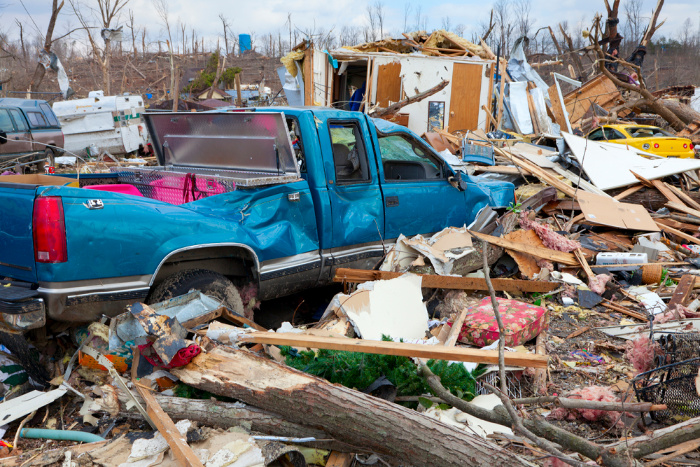


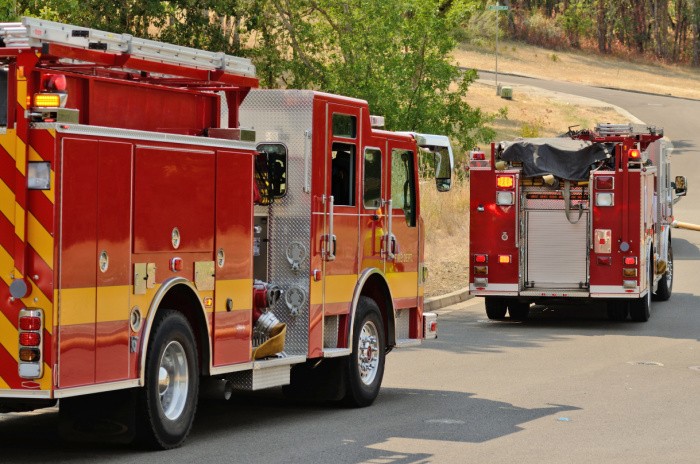

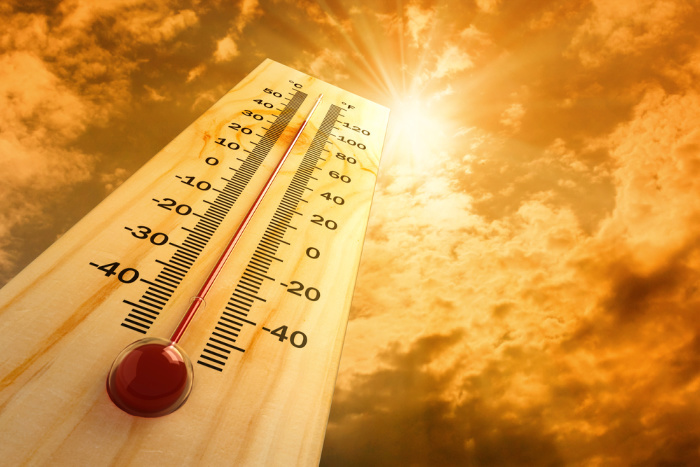
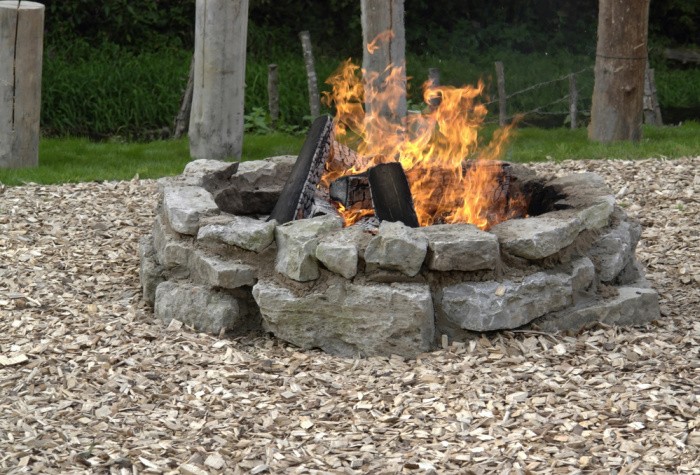














sorry to see that head protection is not included in that tornado kit >>> especially for the kids – there’s usually bike or other athletic helmets around the house that can be moved into position for the season >>> construction type helmets for the adults are both critical for a tornado hit and also for post-strike clean up & salvage …
another point that should be included in the tornado prep >>>> corral those pets early on when a tornado warning indicates a possible take cover – many deaths & casualties every year when pet owners are still searching for that slumbering cat or outside unchaining a dog ….
Hi Illini Warrior, thanks for the reminder, I’m adding it now. Good tip on finding our pets early on. Thank you so much, Linda
Excellent advice. We have frequent tornado warnings & have had a few. We are over-prepared for a disaster! If it takes the house though, probably only for a few days, due to limited space in the storm shelter. How do people in tornado prone areas store/hide their provisions away from the house?
Hi Linda, great question! Let’s see what people say who live in Tornado areas. Linda
Having been through a tornado in 2012, I’d like to add some thoughts from our experience. The tornado that struck our place hit after ten at night. TV and internet went out early because of the storm. phone calls from family and a weather radio warned us of the possibility of the tornado. First item we were missing after the tornado hit were shoes to walk through all the glass in our house. We should have put an old set in our shelter. Second, make sure you carry your cell phone with you into the shelter. When you get out you can call for help or in our case, notify authorities that there is a tornado in the area so they can alert other residents. Third is for after the tornado. I should have taken my camera and took photos of everything. Friends and neighbors helped in the clean-up but lots of things were discarded because of damage. I spent weeks sorting through items coming up with a list of damaged or missing items for insurance. I did have photo inventories of the contents of the house which helped. Be safe!
Hi Randy, oh my gosh, thank you so much for sharing your experience. There are so many tips in here that we can all use. You were smart to take your phone with you into your shelter. Thank goodness you had taken pictures of everything in your home before it hit. Stay safe, Linda
Long story, but I was within a mile of a deadly tornado, and I can tell you they are LOUD. It sounded like a huge convoy of semi’s rolling right at us. Both mom and I survived with no damage to her apartment complex or to us! We later found out it was an EF5 tornado that killed 13 people.
HI Paula, oh my gosh, the word LOUD stands out loud and clear! I’m so glad you and your mom made it through that EF5 tornado! It’s so sad to hear that 13 people were killed. Thank you for sharing your experience. Linda
Put a roll of large trash bags in because afterwards there is usually stuff still there but rain follows. You’ll wanna bag postures and whatever you find to protect them.
If you wanna help someone afterwards laundry is always appreciated because everything is dirty.
Walgreens and Walmart are real good bout helping get ya new scripts if you get hit.
Don’t be a Lookie Lou driving around trying to see the damage. It’s disrespectful, causes traffic issues and doesn’t help anything.
If you go to help take your own supplies like food and water and don’t be a strain on Red Cross and others resources.
I’d advise putting weapons in your shelter because folks will come to steal afterwards. Just the way it is so live in a good state and defend yourself and your stuff.
Hi Matt, oh this is a great comment as always. Good to know about Walgreens and Walmart for scripts. Great reminder abot garbage bags. We will need a lot of those after any disaster. I totally agree tdo not be a strain on the Red Cross, take care of your own. Protect what you have and stay home. Linda. P.S. Lookie Lou, I got the giggles over that one, the name not the situation.
Linda,
As you know I’ve survived more than one tornado. The best way to survive is to have an underground storm cellar–in my case it doubled as a root cellar. Second best, if you can’t have a basement due to your water table, is a tornado proof room. These can be above ground in your house or garage (if it’s big enough). Otherwise, if you have a basement shelter in the SW corner. Tornados normally move from SW to NE in our hemisphere so the SW corner normally receives less damage. Barring any of these shelter in a bathtub with a mattress over the tub, or in a closet.
Randy’s advice about the shoes (or better yet boots) and Matt’s comments are spot on. I’ve used large trash bags as ponchos on more than one occasion. I always had hard hats in my shelter, but then I was in construction, so Illini warrior’s comment is right as well. Also, I found having good gloves, a chainsaw, gas and oil in the shelter helped with cleanup afterwards.
Hi Ray, i love hearing your stories because you and Matt have both lived through tornadoes. It’s good for people in our froum hear to realize people have lived through tornadoes and some have not. Great tips, thank you Ray. Linda
Living in the Pacific Northwest most of my life, tornados were not even on my radar! Now, living on the edge of tornado country, I do have concerns. I’ve always had a bag next to my bed with flashlights, batteries, shoes/socks, gloves, hard hat, garbage bags, as well as a hammer, short handled shovel (mine has a collapsible handle) and water, granola bars (for energy). I keep it under my bedside table.
I had a friend who had a tree limb come through her living room window. Glass was everywhere. She was NOT prepared for this! Also, it was not due to a tornado – just heavy winds. After repairs, she learned her lesson!
Some other things to keep handy are rolls of plastic and duct tape to cover windows and/or secure cracked windows. I have a few plastic shower curtains for this purpose.
Hi Leanne, oh yeah the shower curtains would be great with duct tape! I really hope people understand what they need to survive any disaster, your bedside bag is the prefect thing to have for everyone. We must be ready to evacuate if need be. I hope i don’t have to leave my home but we never know what Mother Nature has planned. Linda
Good evening, Linda, hope all is well with you and Mark. My Daughter informed me that she needs an emergency bag. I asked her what happened to the one I gave her, and she thinks her daughter threw it away. I will be attending a preparedness training next week and told her I will get her a bag. The supplies in the bag are a starter and they tell you to make it for the emergency you think you’ll have. None of them are prepared for anything. I tried, I really tried. I have always tried to be ready for anything, especially weather. We have been known to get some fierce snowstorms, so I was always ready for them with 4 children home. No one wants to HAVE to go to the store during a storm because they have nothing in their cabinets to feed their families. I shopped once a month and filled in during the week for milk and bread. I am taking 2 of my Church members to the training since they expressed a willingness to attend, daughter can’t get off to attend, so I will help her out. If any of you hear about the preparedness trainings, take them even if you don’t need to, and pass the bag on to someone especially a senior who may not be able to get out to attend. Ok, I’m off my soapbox, but we have to be ready for anything. Hugs, Mildred
HI Mildred, you know I love your comment, because I think 95% of my family does NOT have an emergency bag, Years ago I gave them for Christmas gifts filled with supplies. I told them they would have to get their own food and put it in a separate bag so it was easy to rotate out. I doubt any of them have those bags or if they do they don’t know where they are. My point is YOU are not alone, my sweet friend, Hugs, Linda. P.S. We can only do what we can do for our adult children, Great idea to make one for an elderly person.